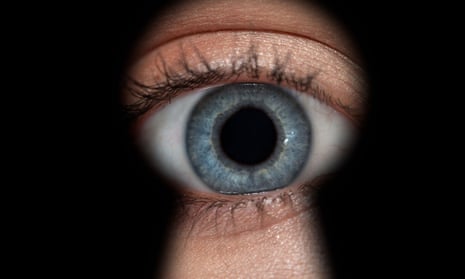The home secretary, Theresa May, has been accused of fast-tracking her “snooper’s charter” legislation by the back door after giving a scrutiny committee of MPs and peers only three weeks to consider the 299-page bill.
The Commons was asked to approve a timetable requiring the joint committee on the investigatory powers bill to report back by 11 February. The three-week Christmas and new year parliamentary recess means that the committee, which has yet to appoint a chair, will effectively have little more than three weeks to scrutinise the highly complex surveillance legislation and could have as few as three expert witness sessions.
The joint committee that scrutinised the previous “snooper’s charter” bill – the draft communications data bill – in 2012 sat for five months and held 13 public witness sessions over a six-week period. It also took evidence in private from the security services.
One member of the committee, Lord Strasburger, tweeted: “Ridiculous. Committee scrutinising massive investigatory powers bill given just 2 weeks to hear witnesses. Govt turning it into rubber stamp.”
Alistair Carmichael, the Liberal Democrat home affairs spokesman, said the rushed timetable risked discrediting the committee’s work. “This inadequately short timescale makes it clear that despite reassurances from the home secretary in the aftermath of Paris, the government does in fact intend to rush this monumental bill through parliament,” he said.
“Proper scrutiny of complex issues requires time and care. The government seems determined to deny the committee both. I hope that members will not allow themselves to be railroaded in this way but will demand the time and resources that they need to produce a report of which they can be proud and in which the rest of us can have confidence.”
Privacy campaigners also voiced alarm. Eric King, of the Don’t Spy On Us coalition of campaign groups, said: “This timetable is inhospitable to informed consideration of extraordinary powers. It is a fraction of the time previous versions of the snooper’s charter received, which had just a fraction of the issues to consider.
“How are the committee to weigh the proportionality of bulk interception powers, the intrusiveness of bulk hacking powers, or scrutinise the evidence base for internet connection records in just a matter of weeks? This is a once-in-a-generation chance to create a world-class legal framework. Rushing to hear evidence before Christmas jeopardises the chance to get it right,” he said.
A Home Office spokesperson said: “Yesterday the House of Lords agreed the schedule for the investigatory powers bill joint scrutiny committee with no opposition. The committee has already started work and under the proposals will have two and a half months before reporting on 11 February 2016. It is for the committee to determine how to use the time available.”
The home secretary ruled out fast-tracking the bill in the wake of the Paris attacks, telling MPs that it was a significant bill and it was important that it had proper scrutiny.
